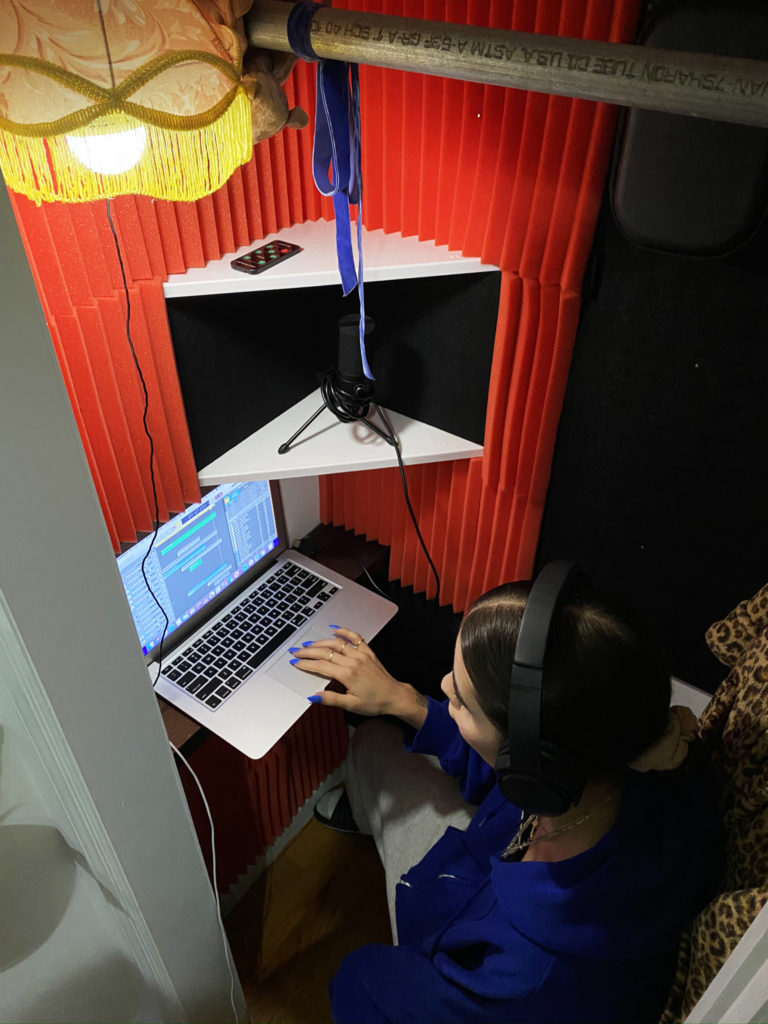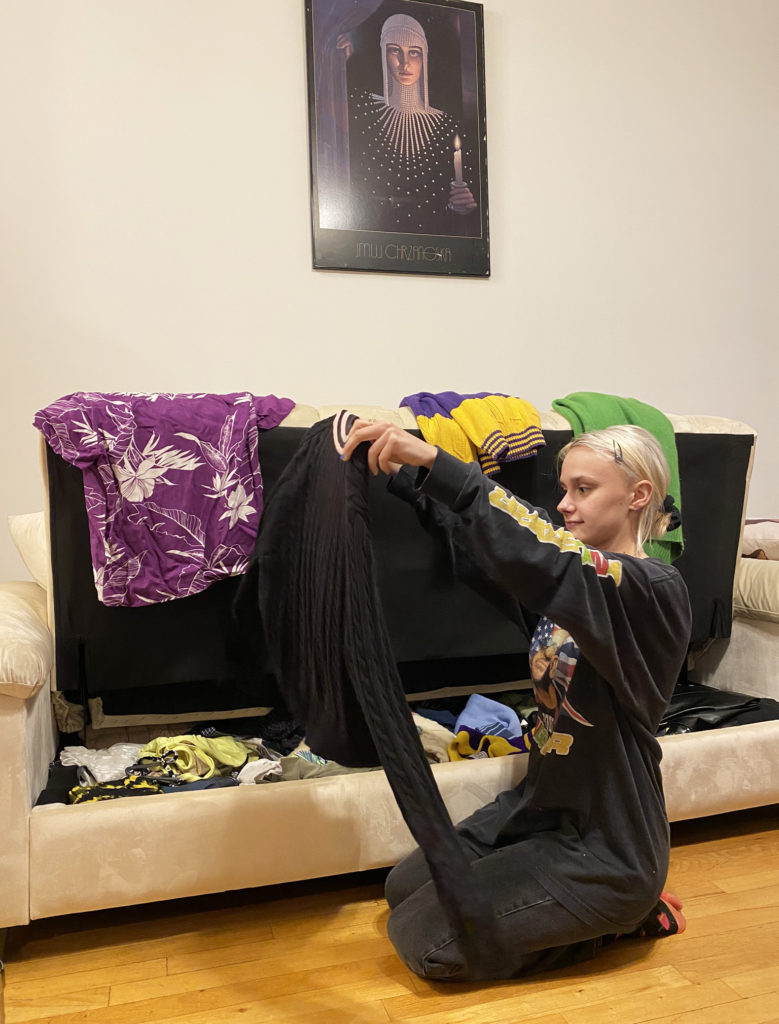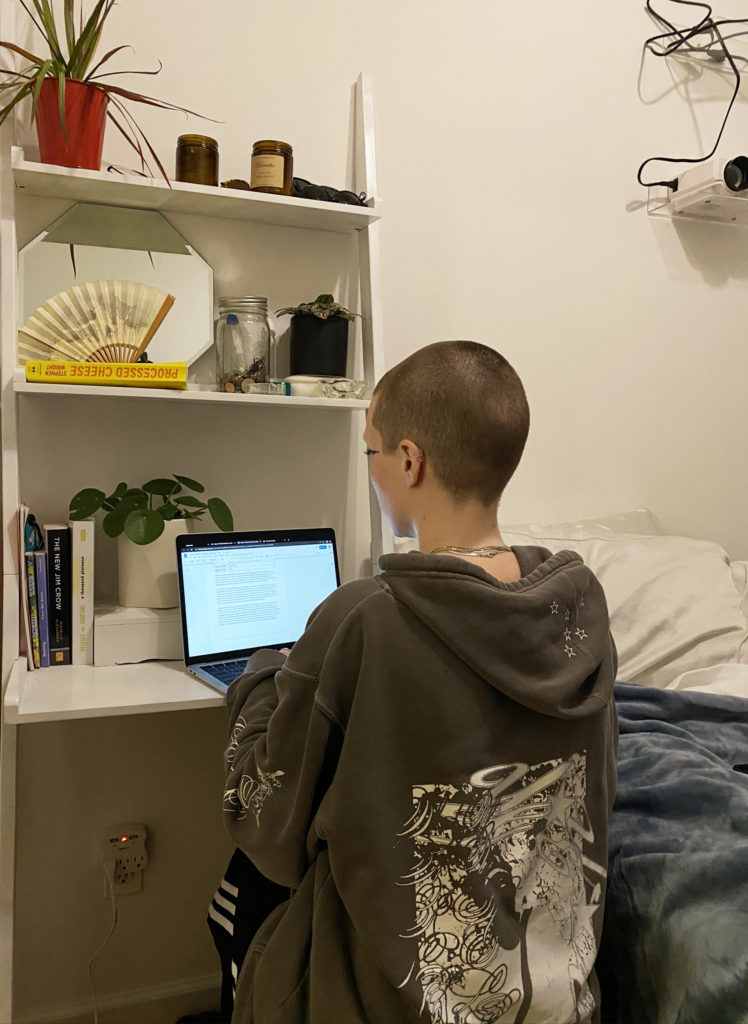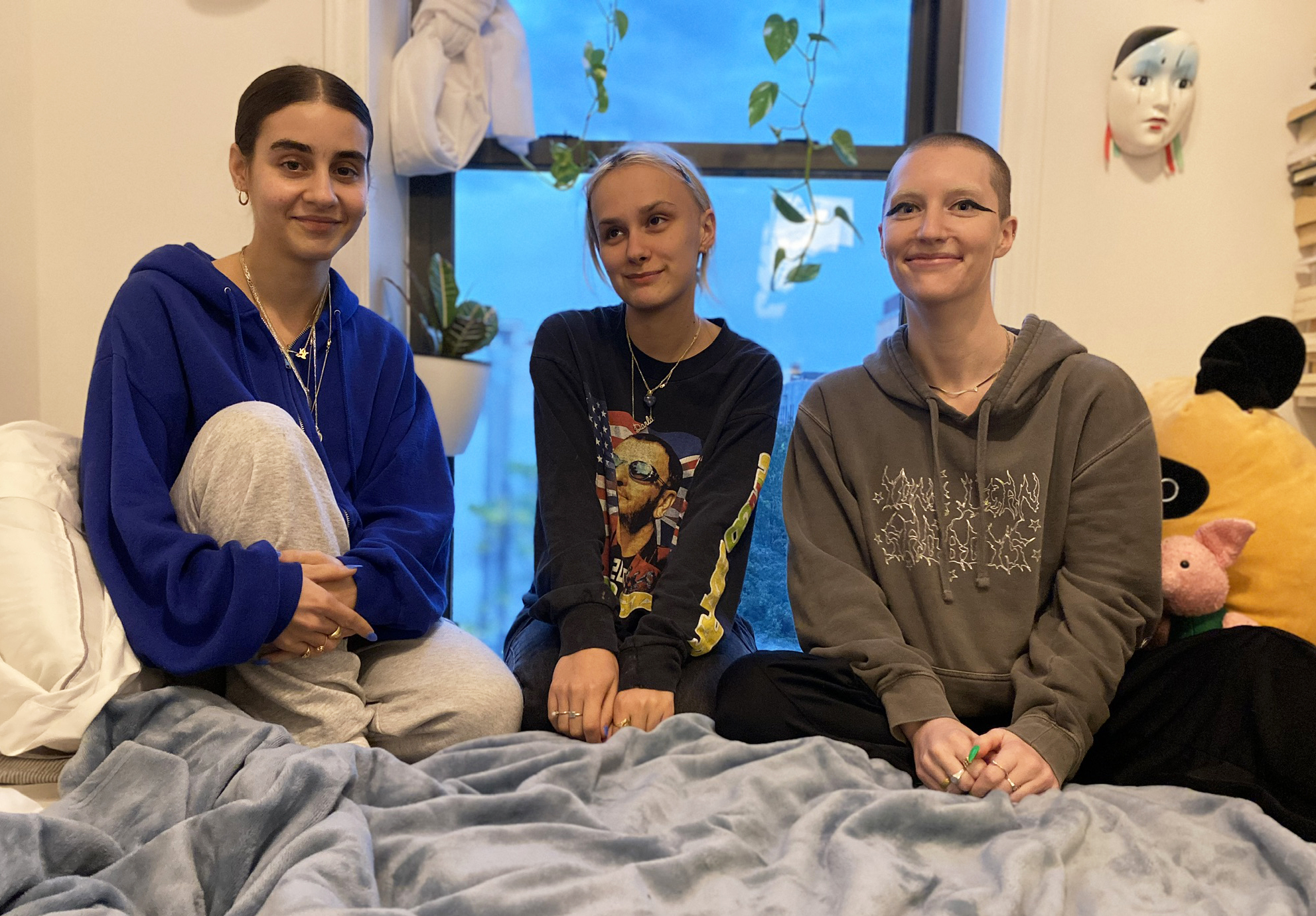Three Los Angeles transplants, including myself, are finding comfort in one another other as higher education left us behind. COVID-19 has taken 200,000 lives and continues to do so in the U.S. as we brace for a cold winter, the flu, and more COVID-19. We sit together in Alphabet City checking our bank accounts that never seem to be full enough, with no concrete plans, placing our hopes in the same institution that abandoned us in early March.
At 23-years-old I want nothing more than to graduate. I want to be the first person in my family to graduate from college, so putting a pause on my life is not only disappointing for me, but also for my mom who has solely been taking care of her three children for 26 years. With only a semester left to graduate I decided to take a leave of absence from The New School. Doing that meant I lost my student loans which helped me pay rent even though I was working a retail job full time between classes. In an effort to not be evicted and support myself I had to move, and that’s when I found fellow dropouts looking for something more affordable.
Cameron Littell, a third-year student at Eugene Lang and liberal arts major, like myself—also happens to be my best friend, roommate, and rock—made what she called an “easy choice” to not return for fall semester. Luckily, Littell continues to inspire herself without the guidance of professors; making music from the safety and comfort of her own bedroom. When classes moved online she found no motivation to participate in the facade presented to her. I can’t say I offered any counter narrative, especially when we both got the email from The New School about raising tuition. We both naively hoped that an institution like The New School would recognize the severity of this pandemic and act accordingly. Instead the University laid off over a hundred employees and fought to not pay hourly wage workers while doing nothing to alleviate financial burdens on students.

Despite the fact that the university brings in enough revenue to pay David Van Zandt a million dollar salary for 9 years and multiple salaries of half a million dollars, teachers continued to take their pennies and go against the strike that could have reduced tuition and kept us in the “classroom.” Now like thousands of other college students across the country our futures have been stunted not just by COVID-19, but by years of unchecked greed.
In a coordinated effort, top earners of The New School administration pitted high paid faculty members against the working students, underpaid students, underpaid teachers, and the underpaid staff. Instead of investing in teachers, education, opportunities for students, affordable housing, students’ futures, or into the education they claimed to provide they put up glass buildings on Fifth Avenue that would soon be empty, held events few working students could actually attend, and paid their part time faculty poverty wages. The cycle of debt built up by the University that once kept enrollment rates high was now a fantastic threat in persuading faculty to not ask for more in hopes of saving jobs that would be eliminated regardless.
The sad truth about The New School is the same sad truth about all colleges, private and public; money is more important than education. Darla Borchardt, a second year at Parsons majoring in photography came to a similar conclusion and filled out her leave of absence application in early August. Braving the dangers of COVID-19, Borchardt works five days a week at a vintage shop in Brooklyn, but we all try to stay creative despite not having structure. We’ve come up with ideas for short films, we share books, and make music in our spare time. Borchardt told me, “I couldn’t fathom getting 75 thousand dollars in debt for online school,” despite the fact she took three years off before attending college. Taking a break was the last thing she wanted to do. Frustrated by the lack of certainty and communication from The New School, Borchardt isn’t sure if she’ll extend her leave of absence to next fall.

As someone who loves education and consistently endorses it, I agree the price tag is far too high for a silly little piece of paper which one day might get you a job that doesn’t pay a living wage.
Access to higher education is vital in creating social mobility, and for the same reason this makes the business of education a wonderful money-making scheme. If you cut pay, raise the price, and advertise to attract more hopefuls, the profit will be huge because what’s being sold is priceless. The rich will pay for it, the poor will pay for it, everyone who can and can’t afford it will pay for it.
Students like myself, Littell, Borchart, and thousands of others who decided they couldn’t gamble with money we don’t have, now exist in the limbo as we watch our peers fall deeper in debt, or glide past us dropping thousands of dollars for a “facetime” call. We’re all in agreement; something has to change, something must change. Stimulus packages are on hold until a sane person enters The White House, and we’ll wait as long as we can. We’ll wait while our schools continue to do Zoom classes without adjusting tuition to match the fact that they laid off student workers. We’ll wait knowing our university continues to operate without adjusting tuition to match the fact that many students have lost parents, entire families, and incomes due to COVID-19. We’ll wait before we have to demand The New School to adjust tuition to compensate for the reality that many students are facing housing instability or are already living unhoused. We’re waiting for our institution of higher education to deliver on its promises.

Three months have passed since we all declared our leave of absence, but more emails with vague promises continue to fill our inbox; most classes will be online, maybe some will be in person, but no one really knows as COVID-19 numbers are ticking up in both Manhattan, Brooklyn, and just about everywhere else in the world. The cost of attendance is nevertheless guaranteed, just not the quality of the product. Breaking up with The New School has been pretty easy because they aren’t begging for us to come back, there are no midnight texts saying we miss you, or we can’t live without you, or you deserve better and we’ll work harder to be there for you. It’s a clean break besides the emails and one question surveys asking if we intend to register for classes this Spring. Mass produced just for you and me, every notification reminds my roommates and I that we have little to look forward to except for being able to cut next month’s rent check.







